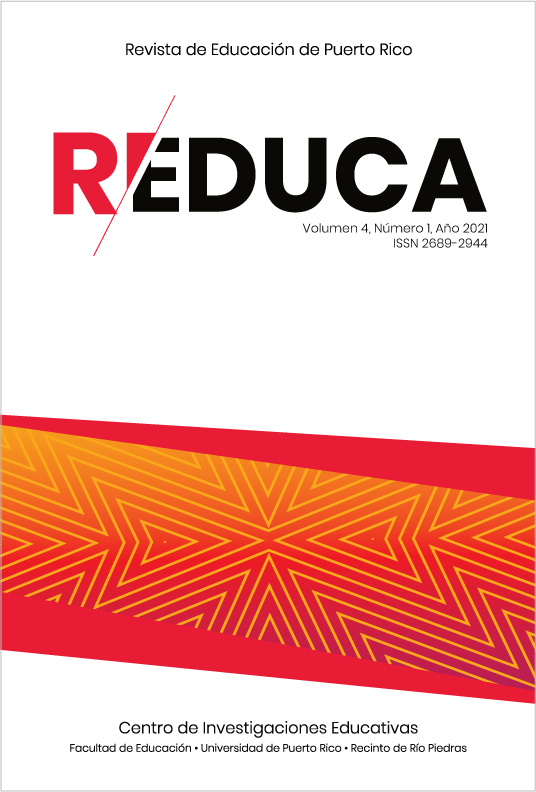Abstract
This paper examines key approaches offered by cognitive psychology and neurocriminology in the treatment against criminal behaviour, particularly within the area of education of inmates. These sciences broaden the spectrum of forensic psychology and provide alternatives for behavioural programs. Cognitive psychology and neurocriminology are contributing new perspectives for the study, understanding and treatment of behavioral problems and delinquency, exceeding conductive and positivists theories that constrained their perspective on crime to a simple equation of crime equals sanction. The body of knowledge advanced by the study of the brain and its neural network opens encouraging possibilities for the diagnosis, prevention, and treatment of violent conduct through education, leaving behind paradigms that focused on punishment instead of behavior modification, that have proven ineffective in a daily basis.
References
Álvarez Pérez, H. J. (2006). Los hallazgos de las neurociencias y su aplicabilidad a la sala de clases: teoría y práctica. Aula XXI Santillana.
Bausela Herreras, E. (2014). Funciones ejecutivas: Nociones del desarrollo desde una perspectiva neuropsicológica. Acción Psicológica, 11(1), 21-34. http://scielo.isciii.es/pdf/acp/v11n1/03_original3.pdf
Betancur-Caro, M. L., Molina, D. A. & Cañizales-Romaña, L. Y. (2016). Entrenamiento cognitivo de las funciones ejecutivas en la edad escolar. Revista Latinoamericana de Ciencias Sociales, Niñez y Juventud, 14(1), 359-368. https://doi.org/10.11600/1692715x.14124160615
Brower, M. C. & Price, B. H. (2001). Neuropsychiatry of frontal lobe dysfunction in violent and criminal behaviour: a critical review. Neurology, Neurosurgery & Psychiatry, 71(6), 720–726. https://dx.doi.org/10.1136%2Fjnnp.71.6.720
Cervantes, S. N. & Robey, P. A. (2018). Aligning reality therapy and choice theory psychology with cognitive psychology. International Journal of Choice Theory and Reality Therapy, 38(1), 13-20. https://www.wglasserinternational.org/wp-content/uploads/bsk-pdf-manager/IJCTRT_XXXVIII_no1_250.pdf
Damasio, A. (1996). El error de Descartes. La emoción, la razón y el cerebro humano. Crítica, Grijalbo Mondadori.
García-López, E. (2014). Psicopatología forense. Comportamiento humano y tribunales de justicia. Manual Moderno.
Glenn, A. L. & Raine, A. (2014). Neurocriminology: Implications for the punishment, prediction and prevention of criminal behaviour. Nature Reviews. Neuroscience, 15(1), 54-63. http://dx.doi.org/10.1038/nrn3640
Gronde, T.v.d., Kempes, M., van El, C., Rinne, T. & Pieters, T. (2014). Neurobiological correlates in forensic assessment: A systematic review. PLoS One, 9(10). http://dx.doi.org/10.1371/journal.pone.0110672
Ibáñez Peinado, J. & De Vicente de Castro, B. (2019). Introducción a la criminología. Delta Publicaciones.
Jayasankara Reddy, K., Rajan Menon, K. & Hunjan, U. G. (2018). Neurobiological aspects of violent and criminal behaviour: Deficits in frontal lobe function and neurotransmitters International Journal of Criminal Justice Sciences, 13(1), 44-54. http://dx.doi.org/10.5281/zenodo.1403384
Jiménez Martínez, C. (2016). No es mi culpa, fue mi cerebro. ¿Es esta una afirmación válida para aplicar la inimputabilidad a individuos con trastornos de la personalidad y psicópatas? Derecho Penal y Criminología, 37(103), 81-107. https://revistas.uexternado.edu.co/index.php/derpen/article/view/4954
Mateos Aparicio, P. & Rodríguez Moreno, A. (2019). The impact of studying brain plasticity. Frontiers in Cellular Neuroscience, 13(66). https://doi.org/10.3389/fncel.2019.00066
Moya Albiol, L. (2018). Neurocriminología. Psicobiología de la violencia. Pirámide.
Moya-Albiol, L. & Sariñana-González, P. (2017). La neurocriminología como disciplina aplicada emergente. VOX JURIS, 33(1), 15-20. https://www.aulavirtualusmp.pe/ojs/index.php/VJ/article/view/963
Ocaña, A. O. (2014). ¿Cómo se entrenan y se modifican la mente y el cerebro humano? Revista de Psicología GEPU, 5(2), 147-163. https://revistadepsicologiagepu.es.tl/%BFC%D3MO-SE-ENTRENAN-Y-SE-MODIFICAN-LA-MENTE-Y-EL-CEREBRO-HUMANO-f-.htm
Pitts-Taylor, V. (2019). Neurobiologically poor? Brain phenotypes, inequality, and biosocial determinism. Science, Technology, & Human Values, 44(4), 660-685. https://doi.org/10.1177%2F0162243919841695
Pozo, J. I. (2003). Adquisición de conocimiento: Cuando la carne se hace verbo. Ediciones Morata.
Redondo Illescas, S. (2017). Evaluación y tratamiento de delincuentes. Jóvenes y adultos. Pirámide.
Roncero, D., Andreu, J. M. & Peña, M. E. (2016). Procesos cognitivos distorsionados en la conducta agresiva y antisocial en adolescentes. Anuario de Psicología Jurídica, 26, 88-101. https://doi.org/10.1016/j.apj.2016.04.002
Saavedra Torres, J. S.; Díaz Córdoba, W. J.; Zúñiga Cerón, L. F.; Navia Amézquita, C. A., & Zamora Bastidas, T. O. (2015). Correlación funcional del sistema límbico con la emoción, el aprendizaje y la memoria. Morfolia, 7(2), 29-44. https://revistas.unal.edu.co/index.php/morfolia/article/view/52874
Santander, O. A. E. (2018). Factores cognitivos y neuropsicológicos en la decisión para el consumo de drogas. Elementos a tener en cuenta en la terapia psicológica. Archivos Venezolanos de Farmacología y Terapéutica, 37(5), 463-473. https://www.revistaavft.com/images/revistas/2018/avft_5_2018/6factores_cognitivos_neuropsicologicos.pdf
Tiffon-Nonis, B. N. (2008). Manual de consultoría en psicología y psicopatología clínica, legal, jurídica, criminal y forense. J. M. Bosch Editor.
Trápaga Ortega, C. M. (2018). De la psicología cognitiva a la neuropsicología. Editorial El Manual Moderno.
Turrigiano, G. (2012). Homeostatic synaptic plasticity: local and global mechanisms for stabilizing neuronal function. Cold Spring Harbor Perspectives in Biology, 4: a005736, 1-17. https://doi.org/10.1101/cshperspect.a005736
Verdejo-García, A. & Bechara, A. (2010). Neuropsicología de las funciones ejecutivas. Psicothema, 22(2), 227-235. https://reunido.uniovi.es/index.php/PST/article/view/8895
Zehr, H. (2017). El pequeño libro de la Justicia Restaurativa. Good Books.

This work is licensed under a Creative Commons Attribution-NonCommercial 4.0 International License.
Copyright (c) 2021 Revista de Educación de Puerto Rico (REduca)

